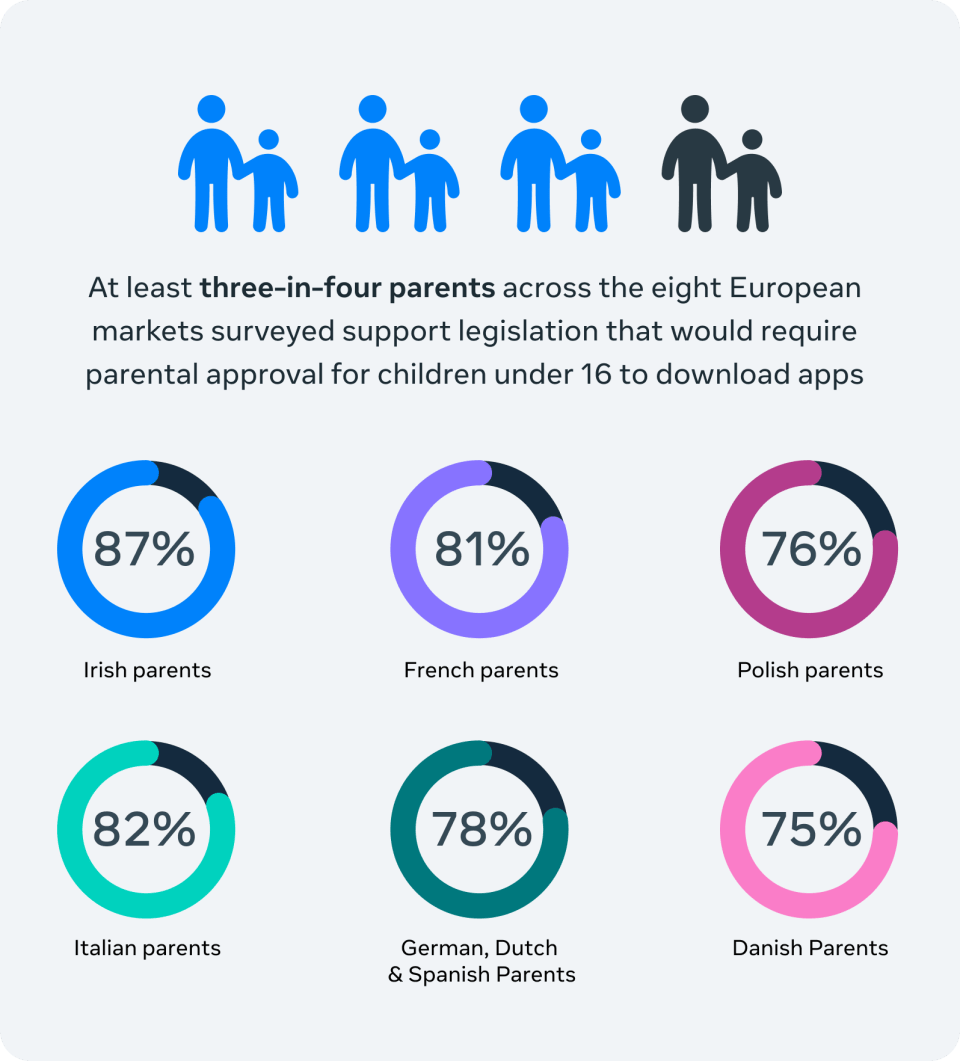
Parenting in a digital world is hard. As a parent myself, I’ve been vocal about the challenge parents like me face every day and like most parents I worry: when is the right moment for my child to have their first phone and will they be safe when navigating the online world for the first time? I’ve dedicated my career to protecting children online, so I am constantly thinking about how we can develop safe, positive experiences for teens on apps like Instagram and ways to make it easier for parents to stay on top of their teens’ online behaviour.
We know parents want to be involved, but it’s becoming increasingly hard to keep track: Teens now use an average of at least 40 apps a week, with numbers rising, as recent studies show, switching fluidly from app to app, to connect with their friends and family, and discover new interests. With technology evolving every day it can feel impossible for parents to keep up with all the apps their teens use. That’s why as an industry, we need to come together with lawmakers to find easy, effective solutions to better support parents.
Technology companies are developing numerous protections to ensure that teens’ experiences on their services remain age-appropriate. At Instagram, for example, we recently launched Teen Accounts, a new experience with built-in protections for teens, guided by parents. Teen Accounts, which are starting to roll out in Europe this year, automatically limit who can contact teens, the content they see, and filter offensive comments and DM requests. Teens under 16 need a parent’s permission to change these settings. But different platforms have different content policies, processes, and age verification systems that often don’t meet the same standards.
This is something which has been top of mind for European policy makers and platforms for over a decade, yet there is no ‘one size fits all’ solution to verify age and ensure age-appropriate experiences, and the regulatory framework around it is fragmented. While the European Union (EU) has passed an extensive package of internet regulation in recent years, when it comes to young people online, leadership has been lacking and we’re concerned about what is amounting to a patchwork of divergent approaches and partial protections. At the European level there are several pieces of legislation addressing the protection of minors: the Digital Services Act, the Audiovisual Media Services Directive, the General Data Protection Regulation and several other important initiatives, such as the Better Internet for Kids Strategy, to name just one of many. There are also live policy discussions in several EU Member States, including in France, Italy, Germany and Spain. But none of these initiatives provide a reliable, consistent approach to age verification and age-appropriate experiences, which means young people are having vastly different online experiences depending on which app they use, and where they’re based.
There is a better way. We need new EU regulation that provides clear, consistent protections for teens online and applies to all apps they use. This regulation should be based on a set of core principles.
Age Verification & Parental Approval at the OS/App Store Level
When a teen wants to download an app, the operating system (OS) or app store should be required to notify their parents so they can decide if they want to approve it, much like when parents are notified if their teen attempts to make a purchase. Placing the point of approval within the OS or app store simplifies the process and leverages optional approval systems already offered by app stores. With this solution, parents can also easily verify the age of their teen, which helps apps to place teens in the right experience for their age. Furthermore, because in some countries parents already provide official identifications like Government IDs to app stores when they purchase a teen’s phone and set up their account, it avoids this sensitive information having to be shared with multiple apps to achieve the same outcome. In Europe, this approach differs depending on where you are, which makes the process even more complex.
Consistent Content Standards and Parental Supervision Features Across All Apps Teens Use
It’s time we have common industry standards for what is age-appropriate that parents can rely on: Different platforms have different different rules and different processes. Built-in protections should apply across all apps teens use, in particular social media apps. Similar to our approach with Teen Accounts certain apps should be required to offer parental supervision tools, including the ability for parents to set daily time limits. We also need broader alignment across industry on the types of content companies should consider age appropriate, as there is for other media like movies and video games.

Harmonised Regulation Across the EU
In Europe, any solution will only be impactful if it is mandated by a legislative framework that applies across all Member States and for all apps teens use. New EU Regulation that holds all apps to the same standard would be the simplest and most effective way to support parents and their teens. We recently submitted a proposal for a suitable framework to the European Commission as part of their consultation on the Digital Services Act, and a range of other digital platforms shared similar views, demonstrating widespread support across industry. It also comes with growing support amongst parents. A recent survey* by Morning Consult of European parents found that almost 75% of parents in all eight countries surveyed would support a Europe-wide law requiring parental approval for teens under the age of 16 to download apps. This included 87% of Irish parents, 82% Italian parents, 81% of French parents and 78% German parents.
Technology will continue to evolve. We need to make sure parents and teens are equipped to safely navigate the online world. I look forward to continuing our work with industry peers and regulators across Europe to find a solution that works and eases the burden on parents.
The post Europe Can Make Parenting in a Digital World Easier appeared first on Meta.















 English (US) ·
English (US) ·